This weekend my friend Alex was visiting, and we started work on a more useful entrance into his wood. But first, I want to show you some pics of birds, because now it's heading into winter the leaves have gone and our feeder is filled again, so there's plenty to see:
As well as that Great Tit, there were several Coal Tits:
I wondered if some of them might be Marsh or Willow Tits, but I'm not good enough on the ID to be able to tell, as they all look similar
Anyway, over in Alex's wood, which is near ours, we started work on the entrance. When we started, there was just a gap in the fence and a wooden foot bridge over the stream inside the border.
After a day's work, we had a clear track area as far as the stream:
It was a nice area to work in, with plenty of space to fell trees into.
Alex did a lot of splitting and moving logs while I was chainsawing:
and also piling brash up to make a dead hedge along the boundary:
The logs have all been put in a rack to season, so perhaps next winter Alex will be burning some of them himself at home...
Here's the view from inside the wood back onto the wayleave:
As it's facing south, it should get a nice amount of sunlight into the wood, as well as providing access, so it'll be interesting to see what grows there next summer.
Today we got back into coppicing over in Sweep Wood - last week was very busy at work, so we didn't get to go. However, Tracy had to go to a meeting at school for much of the day, so I busied myself with sorting out the end walls of the firewood shelter, which were in danger of falling over. This was due to putting the stakes in during the summer, when the ground was hard, so they didn't really go deep enough. Anyway, it's all sorted now:
We're not the only people who've been working in the wood. The National Grid's contractor has been along to selectively fell trees in the wayleave. They've chipped the brash, but left logs for the woodland owners to make use of:
They'll come along again in a few years to do it again, and then again a few years after that to flatten the whole area. When they do this it will look appalling for a short time, but it's this method of management that's made it into the unique habitat that it is today, so that's OK.
Mike
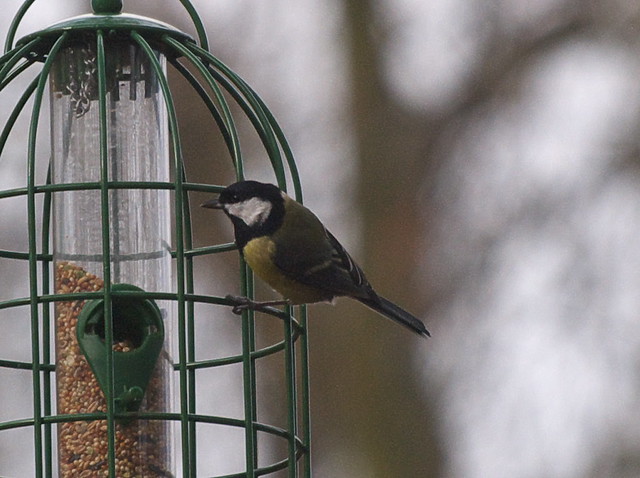

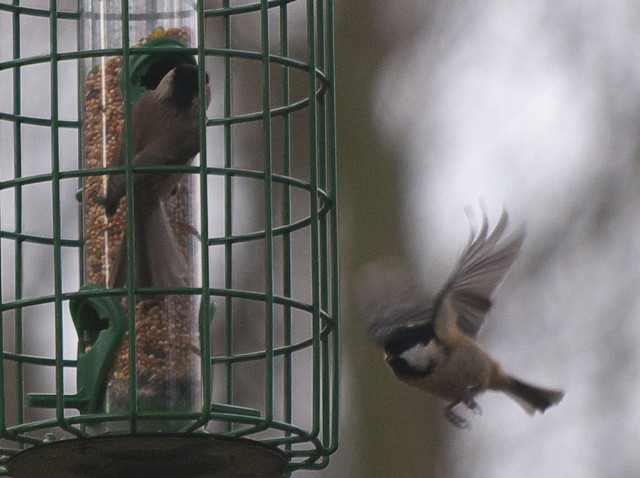
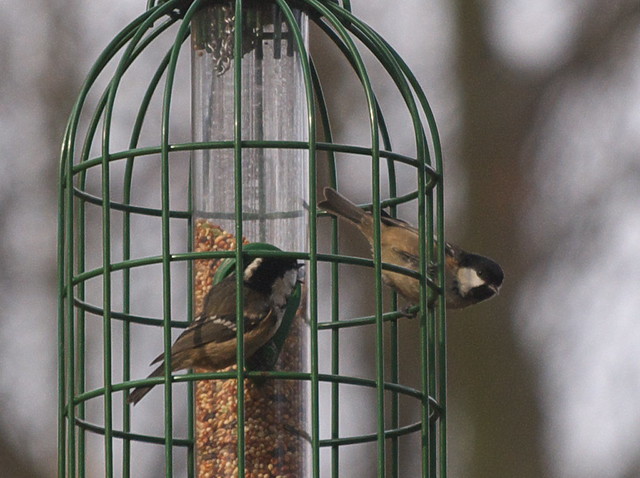

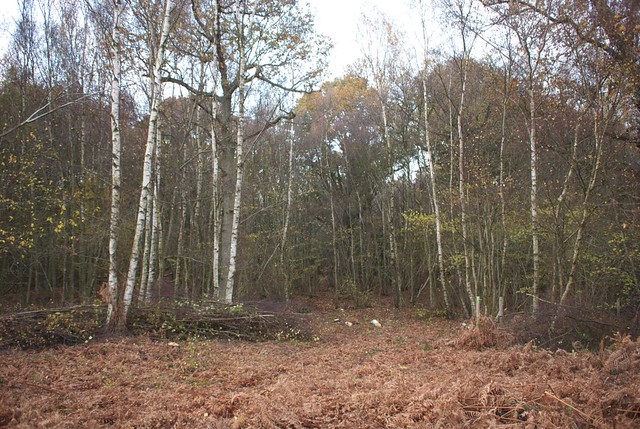
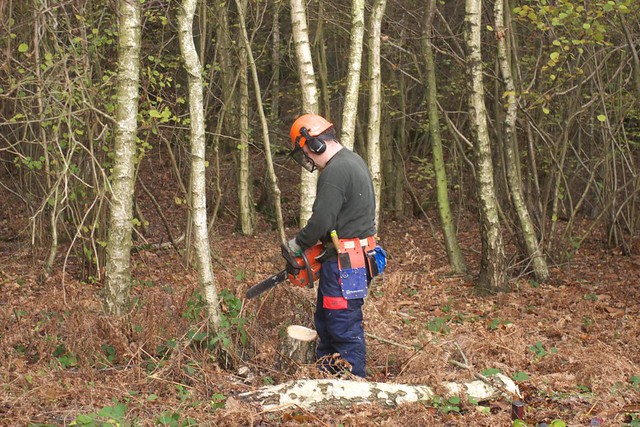

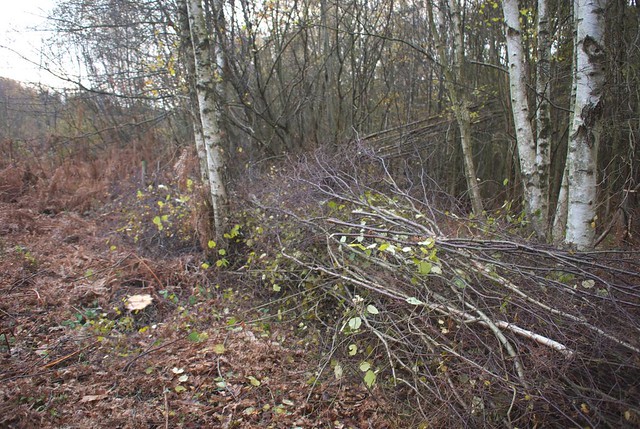
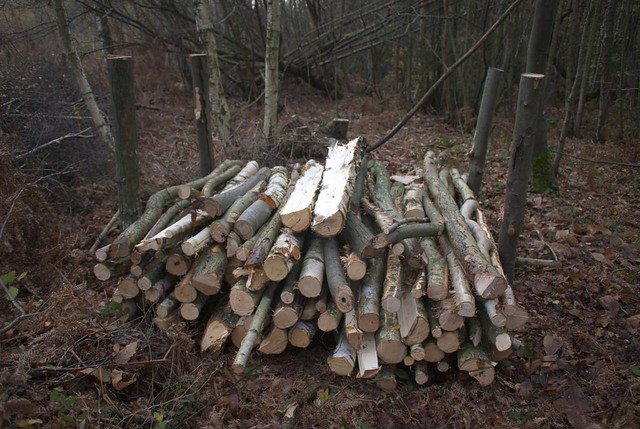
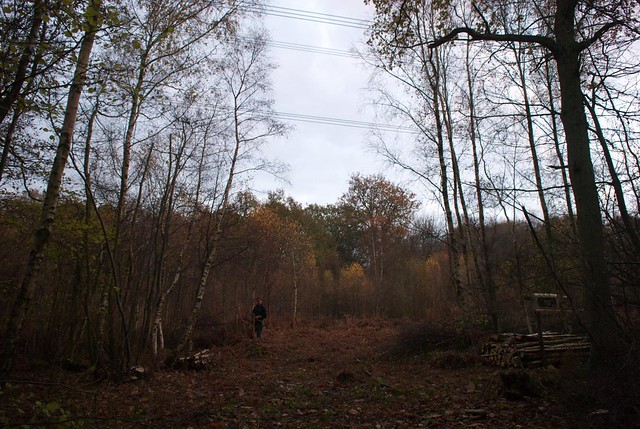
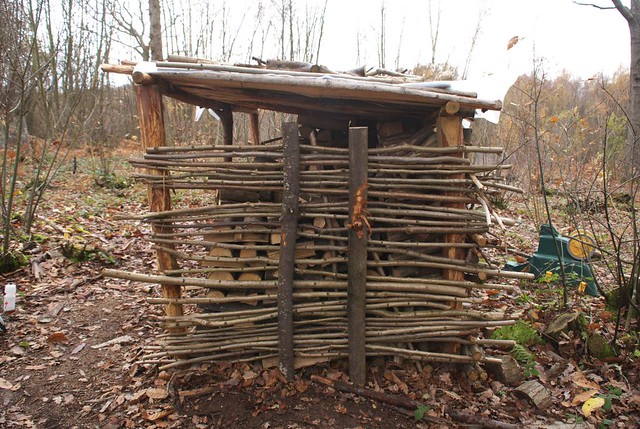



No comments:
Post a Comment